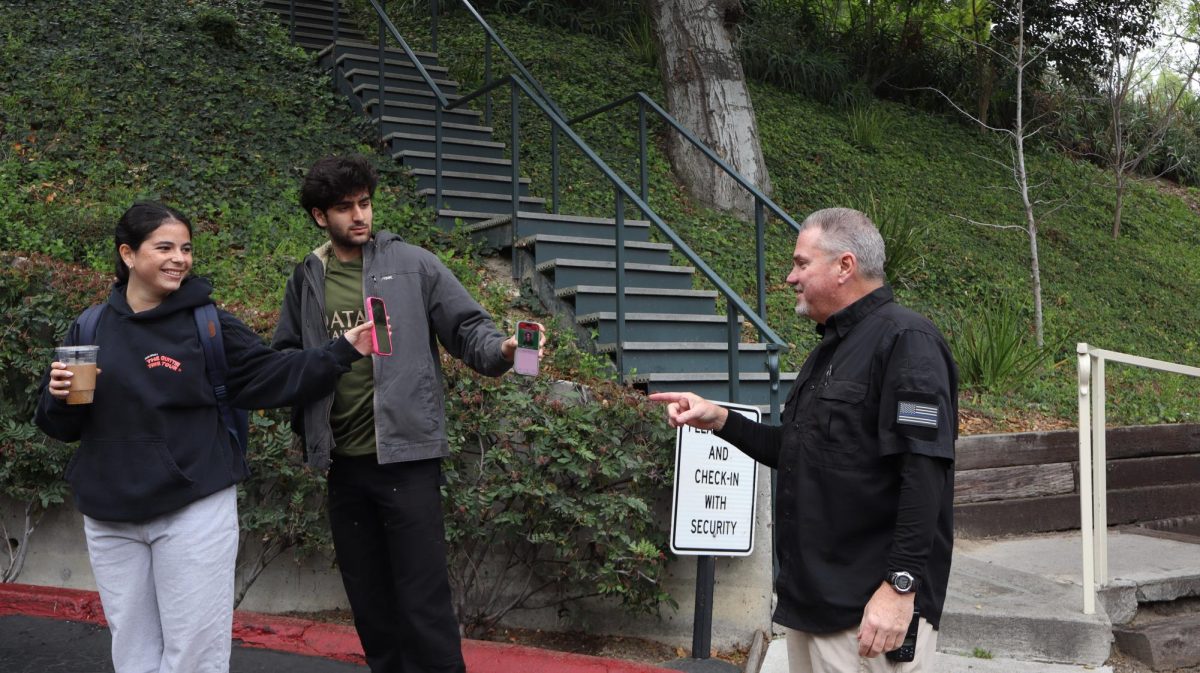By Maya Spitzer
Anna* knew cheating was wrong, and had never cheated before. But when her friend sent her an e-mail with a stolen essay question for the upcoming the World and Europe II midterm, she looked at it and she prepared for it.
But during the exam, she suddenly couldnât bring herself to write that essay, ânot because I thought it was wrong, but out of fear of getting caught,â she said. âI guess it shows a lack of good morals â Iâm happy I didnât do it.â
Anna claims she tried to persuade her friends to not use the stolen material because they might get caught, but to no avail.
Afterwards she never even considered turning in her friends who compromised the test, because showing disloyalty to her friends was just as bad as cheating in her mind, both of which she would not do.
âI feel more loyal to my friends than the school,â she said.
She says she recognized her friendsâ culpability, but understood why they cheated.
âParents and Harvard-Westlake put so much pressure; they just donât want to be grounded,â she said. Her own motivation to cheat was based on wanting to please her parents by getting a good grade, she said.
What most angered her was how long it took to decide the fates of her friends, two weeks of endured castigation. Their permanent expulsions were ridiculous to her, because she knew they had been taught a lesson by this experience, and would not continue to steal tests.
Now she feels conscious of condescending stares from students and from teachers, but she pointed out, it will provide good material for a college essay.
For Brad*, whose friend offered him a copy of the stolen the World and Europe II midterm, the decision not to cheat was clear, and he declined.
He admitted to briefly entertaining the idea of cheating, but he suppressed the temptation.
His moral code did not compel him to inform the school about his friendâs actions, outweighed by his loyalty to his trusted friend. After all, âmy community is my friends,â he said.
He feels that the Honor Code did not require him to turn in his friends and resents the notion that students should turn others in.
He knew his friends got what they deserved, but has âa strong desire to stay friends with them.â They took responsibility for their actions, and theyâre going to learn, he said, looking away.
âI have a problem with people saying theyâre bad kids. They didnât mean to hurt anyone.â
He had to watch for weeks as his friends were tortured by prolonged deliberations of the Honor Board, as they were given false hope that they wouldnât be expelled.
âStudents just arenât equipped to handle it,â noting that the middle school drug scandal was over in about a day. âThey made it so big, dragging it out like that.â
In class, Charlieâs* friend offered him a hard copy of the World and Europe II midterm. He rejected it right away, thinking âno, I just canât do that, cheating is wrong.â
He would have felt horrible if he had cheated. His closest friends would never have offered him the test because they knew he wouldnât go for that. He was offered multiple times by other kids though, in class and on the internet.
Charlie never thought about turning anyone in, ânot because it was right not to say anything, but because I didnât want to.â
He wished he could have written an anonymous note, but he didnât âthink it was possible in this environment,â he said.
The senior who turned in sophomores has taken a lot of grief, he knew, and he wouldnât want to take his place.
His friends now expelled, Charlie still feels close with them, confident of their basic goodness. He didnât need to share all their values as long as he maintained his own.
Chaplain Father J. Young says that he believes that, âto some degree, I actually do think we have such an environmentâ in which students can come forward to the school, âthough it clearly didnât work in this instance.â
âPerhaps it took an event like this to illustrate to the community the notion of how the actions of a small group of folks can affect the entire community.â
*Names withheld upon request






























